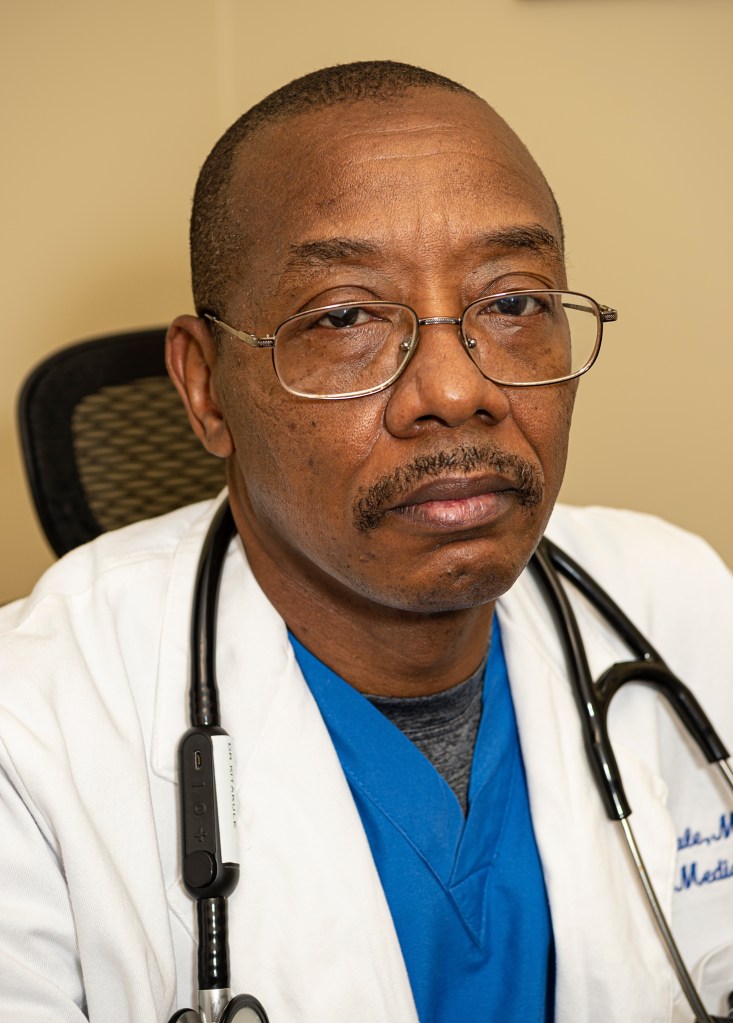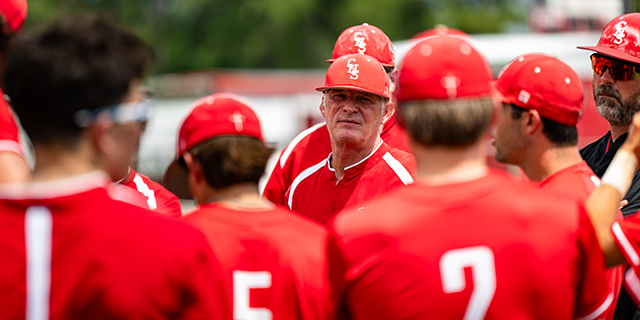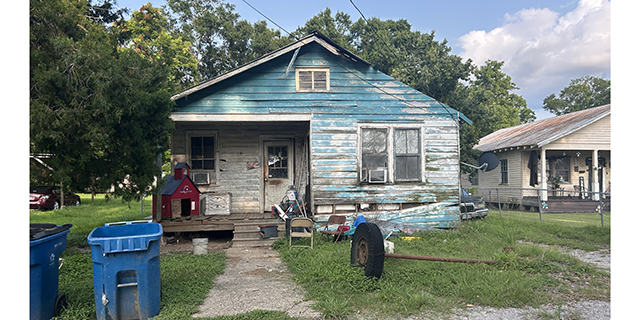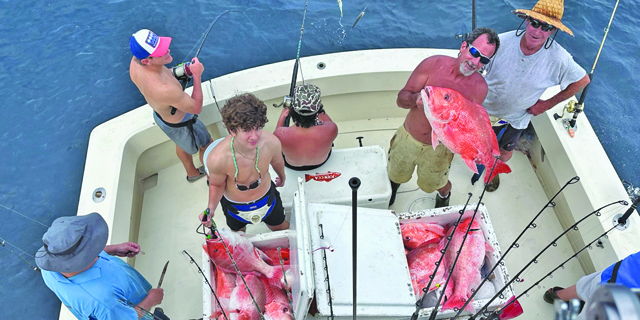A local pulmonologist shares his experiences treating covid19 patients
Published 8:00 am Thursday, December 3, 2020

- Dr. Moses Kitakule. Lee Ball Photography
When Moses Kitakule was 13, growing up in Uganda, he was stricken with a strange infection in the abdomen that sent him to the hospital. There, a young intern, also named Moses, took care of him and made a profound impression on the younger Moses, planting the desire to also become a doctor one day.
“He was a good doctor and I always looked forward to him examining me because I knew I would not die under his care,” says the now Dr. Moses Kitakule (pronounced Chit-ah-cooley).
The second influence on his career would come while in his residency in New York. “God puts some people in places for you,” says Dr. Kitakule. “When I arrived at SUNY Downstate Medical Center in Brooklyn, I was a lost African kid, and the Chairman of Medicine there took me under his wings and inspired me. He was one of the smartest pulmonologists in the country and, under his mentorship, I became chief resident at SUNY Downstate.”
In 1997, Dr. Kitakule – Dr. Moses to his patients – moved to Franklin and worked as an internist at Teche Action Clinic, while living in New Iberia. After nine years, he would come to realize that his calling was to become a pulmonologist. While waiting to begin his three years of training under his mentor back at Long Island Jewish Medical Center, he worked at Iberia Comprehensive Clinic.
When he finished training, Dr. Kitakule moved back to, what he considered, home – New Iberia – and began working as a pulmonologist, intensivist and sleep specialist at Iberia Medical Center in 2009, where he remains today. His days are, for the most part, spent treating patients with lung cancer, chronic obstructive pulmonary disease, respiratory failure, and, of course, COVID-19.
In fact, he led Iberia Medical Center’s Covid-19 response as a principal investigator in a Mayo Clinic trial, researching ways to help COVID patients fight the virus using convalescent plasma therapy. (It was shown that convalescent plasma can be given to patients with severe COVID-19 to boost their ability to fight the virus.) Since the trial, the Food and Drug Administration approved the therapy. “I think it helped a number of patients getting the plasma,” Dr. Kitakule attests.
He describes COVID-19 as a “lonely disease,” in speaking of the mandated patient isolation. Through it all, he learned valuable lessons from his work with those patients stricken. “You wonder if you’re making any headway, but I learned to never give up on COVID-19 patients – right down to doing everything you can in terms of care and that includes taking care of people with dignity towards the end of their lives. I try every possibility and then I let God do the rest.”
He describes 2020 in three words: Busy, Sad, (for the patients lost to COVID) and Joyous (for those who were very sick and became well, when the odds were against them, as was the case for one patient who became a friend.) “He was in the hospital for two months. At one point I resuscitated him and, yet, he made it.”
COVID-19 was not Dr. Kitakule’s first encounter with an epidemic; some of his first years of training were with AIDS patients. His first year’s internship was spent treating AIDS patients in Uganda. “A lot of people my age in Uganda died of AIDS – young men who I grew up with died,” he says. During his fellowship in New York in the early 90s, there was an AIDS epidemic, in part, he says, due to a population of infected Haitians living in Flatbush at the time.
He says the experience with AIDS patients taught him two very important lessons. “First, it taught me endurance, because it was a very busy time; AIDS was ravaging in New York. More importantly, it taught me to learn to care for patients under all circumstances. I’ll never forget when I was a fifth-year med student and a young woman who had HIV was about to deliver her baby and people were scared to assist her for fear of contracting AIDS. (You can hear his voice crack through his mask.) I was able to deliver this baby and it taught me to care for people without discrimination, even given the risks involved.”
While New Iberia is home for Dr. Kitakule, you get more than a sense that part of his heart will always be in Uganda. That’s most evident in the foundation he established, in honor of his father, to help the people in his homeland. Funds from the foundation have helped build a library for children (that is solar powered) and there are plans to put in computer stations. “My father always insisted on good education,” Dr. Kitakule interjects.
The Foundation has also created a clinic for children, as healthcare for children and women is one of those causes dear to him. Also, solar-powered, the clinic has an electronic medical records system that was donated by iMED in Lafayette. “I wanted doctors to be able to log in and treat patients from remote areas. I wanted the people in the village to have a clinic that looks like one in the United States; I didn’t want them to be short-changed,” he says, as plans are underway to add a second clinic.
In addressing world health, Dr. Kitakule wishes, “that we could focus on eliminating diseases that kill so many, but cost so little to cure – like malaria, the disease which killed my father. My question, for so long, has been, ‘Why have we let malaria go on so long without finding a solution?’ I did an internship in pediatrics in Uganda and almost all of the cases were malaria. In one night, you could declare 10 children dead. In one night.”
Of the awards and recognition plaques you might expect to don the walls of his office, Dr. Kitakule has just one that he is proud to show. In October, the nurses of Iberia Medical Center’s ICU and Medical Staff presented him with a plaque acknowledging his dedication, kindness and skills during COVID. “They also made a donation to my foundation,” he smiles.
The family environment at Iberia Medical Center is one of the reasons Dr. Kitakule has stayed for 11 years. “I like the patient population here as well, and the management is responsive, and there is no complicated bureaucracy.”
With a very busy work life – especially this year – Dr. Kitakule has found it a challenge to make time for diversions. “I’ve been on call almost every day since COVID,” he says – in no way complaining. With three grown children living away and in school, it is just he and his wife, with whom he enjoys a cup of tea at the end of long, hard days. “I talk about some of the problems I can’t solve. Before COVID we’d go to movies, but I’m a home person; that’s where I unwind. I could stay at home for two weeks,” he says, his eyes squinting mischievously.
It would appear that he’s done his most important work from home when he ends the conversation on family – and an interview about community service – saying, “I want my children to learn to be a blessing to other people.” From all indications, they’ve certainly had a good role model.
Strong Medicine
Favorite singers: Jonathan and Melissa Helser
Favorite place to unwind: Home sweet home
Musical Ability: Plays African drums
Hobbies: Astronomy, walking and soccer (Go Chelsea!)
Favorite Cajun Food: Crawfish Etouffée
Recommended Read: “Celebration of Discipline” by Richard Foster





